- Home
- Russell Blake
King of Swords (Assassin series #1) Page 3
King of Swords (Assassin series #1) Read online
Page 3
She wished that they could move, maybe to Guadalajara, where the weather was usually nice and the verdant region of Lake Chapala was little more than an hour away, but her husband’s job wouldn’t allow for that. She hated that they were locked into living in their little three bedroom row house in Toluca, near the airport, in a neighborhood that seemed chronically victimized by crime; but life wasn’t always fair or easy and they were doing the best they could.
Rosa had a decent career as an insurance agent for her own small agency, and between her income and her husband’s they did as well as they could expect, but sometimes she was affected by a sense of melancholy, especially as she watched her eight year old daughter growing up in less than ideal conditions. Cassandra had been a miracle baby; Rosa’s doctor had convinced her that she would never be able to carry a baby to term due to a host of chronic immuno-deficiencies, but a strong faith in God and skilled care at the hospital had brought Cassandra howling into the world, where she’d been Rosa’s pride and joy ever since.
Glancing at her daughter, Rosa brushed Cassandra’s hair out of her eyes, and using a corner of her napkin, wiped away a smudge of strawberry from the little girl’s upturned lips. Cassandra – Cass – gave Rosa a look of embarrassment and hastily rubbed her forearm across her face. Rosa smiled at the gesture. That was another way to do it, she supposed.
A policeman on patrol tipped his cap to the pair as he strolled by; she returned his smile out of courtesy. A striking example of classical Mexican beauty, with flashing eyes the color of espresso and black hair that shimmered like silk against her café-au-lait-complexioned skin, she was accustomed to admiring attention from men, even though she’d long ago pledged her heart and soul to her husband – the love of her life.
Cass had inherited her stunning features, but with an unexpected twist of dirty blond hair – a testament to her father’s partial German lineage several generations back. Even now, barely an adolescent, she was a gorgeous child, and Rosa knew she was destined to break hearts when she blossomed. It was not out of the question that she could be a model once she hit her teens; a few of Rosa’s friends had already said as much.
As they watched the cars go by and the kids playing on the square, both mother and daughter felt happy to be relaxed in a place that was safe and relatively unspoiled. They’d just finished lunch at a small restaurant at the base of one of the old hotels facing the church, enjoying the best chicken Mole Poblano Rosa had tasted in years. Mole sauce was more of an art than a recipe, and each region had its own take on the dish. In Puebla, the sauce was nearly black, as thick as liquid tar, redolent of chocolate and clove and thirty-something other spices and ingredients. It was a rich and heady dish, and few restaurants could pull it off as well as the one they’d dined at. Puebla was one of the Meccas of Mexican culinary accomplishment, and Mole Poblana was a signature Pueblan specialty.
Cass had busied herself naming the pigeons that paraded and strutted across the street in the square, and one particularly unctuous example of male avian belligerence had captured her attention. She’d announced to Rosa that his name was El Guero – the pale one. The bird was almost blindingly white and had a remarkable presence; a swagger in each step and with chest puffed out, he fanned his wings and tail feathers in a display of mating finery. The smaller gray females were clearly impressed with his moves, as was Cass. Back and forth he swooped, cooing loudly as he pranced, the bird king of the Puebla park holding court for his admiring subjects.
Finished with their post-prandial treat, they left the vicinity of the square and made their way to the parking lot where they’d left their car – a Peugeot that had never seemed to run correctly since the day they’d bought it new, on payments that amounted to twenty percent annual interest. Rosa hated the little blue beast; they were counting the days until it was paid for so they could sell it and get something more reliable.
Two blocks from the square, a Ford Expedition pulled to the curb beside them, and two men who had been following a few yards behind abruptly grabbed the pair and forced them towards the rear door. Rosa screamed, as did Cassandra, who also kicked and tried to bite her assailant’s arm. One of the men punched Rosa hard enough to break her nose in an effort to stop the yelling, before he manhandled her to the vehicle. There was sparse pedestrian traffic on the sidewalk, but the few people who saw the altercation stopped walking, frozen in place. Kidnappings were an unfortunate and all too regular feature of some larger cities in Mexico, and the armed gangs that specialized in it were not to be trifled with. Shootouts were not uncommon, because those drawn to the profession were typically violent and desperate, with nothing much to lose.
The man who had punched Rosa pinned her on the rear seat while the other man lifted the struggling, screaming Cassandra and stuffed her next to her mother. One kidnapper got in back with the pair; the other climbed into the front passenger seat. The truck roared off down the street in a cloud of exhaust and a squealing of tires. It had no license plate, a not particularly rare occurrence for those who didn’t want to pay registration fees, so there were no immediately identifying marks other than a description of a large white Ford SUV.
The man in the rear seat slapped duct tape over Cassandra’s mouth, then reached over and did the same with Rosa. The abductor in the passenger seat trained a pistol on Rosa’s head, convincing her quickly that creating further havoc could be a fatal miscalculation. Cassandra sobbed into the tape, terrified of what was happening and what was likely to come.
Twenty-five minutes after being snatched off the street in broad daylight, their assailants threw Rosa and Cassandra down a flight of stairs into a basement with a filthy mattress and a broken sewer line evacuating into one of the corners. The stink was overpowering, and once the tape had been torn from their mouths, Cassandra vomited all over herself, infuriating the four men who descended the stone stairs a few minutes later. The largest of them slammed her against the far wall and issued angry instructions to one of his subordinates, who quickly returned with a hose from the garden immediately outside the basement entrance.
Rosa attempted to shield her daughter, but the large man grabbed her by the hair and punched Rosa in the stomach, knocking the wind out of her and crippling her with pain. She collapsed on the floor, helpless, and two of the men alternated kicking her with their pointy-toed cowboy boots. After a few blows, she mercifully slipped into unconsciousness. Even so, the men continued to rain kicks on her abdomen and back until they tired of the sport and turned their attention to the young girl.
A stream of cold water struck Cassandra in the face. The men laughed as she screamed in fear and rage at the shock, as well as the vision of her mother’s inert form in the filth on the dank basement floor. Once the vomit had rinsed clean, the large man approached her huddled shape as she shivered, soaked and terrified, and tore her dress off, ripping the thin fabric as though it was tissue. Grunting, he lifted her like a rag doll and threw her onto the stained mattress. Stunned, she cried in panicked horror as the men circled her in preparation for the afternoon’s diversion. The large man fumbled with his belt, and the others smiled in anticipation as Cassandra’s unholy shrieks reverberated off the uncaring walls of her private hell.
Two days later, a package arrived at Rosa’s husband’s work with his name written carefully on the label in black felt pen, with a return address in Puebla – that of Rosa’s parents. A local courier brought the box in and the receptionist signed for it, then instructed the mail boy to take it to his office, where he was hosting a staff meeting for his immediate subordinates.
No one working that day would ever forget the screams of horror and grief that emanated from his office when he opened the special delivery. Inside, wrapped in plastic and surrounded by crushed newspaper, were Cassandra’s and Rosa’s heads, neatly severed at the third cervical vertebrae, with their eyes crudely sewn shut. Each had the brand of a scorpion seared into their foreheads, and the tail of a scorpion protruded from each of their mouths, w
here the predatory arthropods had been lodged as calling cards.
Four Months Ago
The crowd broke into a rousing cheer as Hector De La Silva took the podium at the rally in Durango. Long one of the more popular governors in Mexican history, his term had passed without him seeking re-election – his aspirations for the presidency as the likely successor to Mexico’s highest office quite obvious. He’d already begun the convoluted and colorful campaigning that made Mexican elections something of a spectacle – the fiery rhetoric and accusations vivid and damning, the promises lofty and inspiring. Nobody actually believed anything the candidates said – history had shown that no matter who was in power, the campaign promises were immediately forgotten as soon as the voting was over, but the process was celebrated for the showmanship and sense of theater.
Hector, or ‘El Gallo’ as he was known – the rooster – was in his element; a consummate performer from decades of holding political office, he knew how to play to a crowd like a virtuoso. He was famous for slamming his forehead into the podium when his speech reached its climax, underscoring the sacrifice he was prepared to make on behalf of his constituency – the head-banging routine was now as popular and expected as the flip off the top rope in the Mexican wrestling matches; the Lucha Libre, where masked wrestlers-cum-gymnasts performed amazing feats of physical dexterity as they pretended to fight each other. Nobody believed that was real, either, and yet it was hugely popular, trailing only soccer for entertainment value.
The assembled spectators waited in quivering anticipation as El Gallo mounted the stage, clad in an everyman cowboy shirt and sporting a cowboy hat. This was a man of the people, a member of the masses, he assured them, even as his four hundred dollar ostrich-skin boots gleamed in the sunlight. Never mind that his brothers were among the wealthiest landowners in the region, or that his father had been a household name in building low income housing. Forget all that, his demeanor seemed to demand. Here was a humble, simple man, who reluctantly would shoulder the considerable burden of steering the nation back onto the path of righteousness; having somewhat lost its way – though certainly not because of the actions of his political party, which was also the current president’s. No, the country was in mortal peril because of a crisis in morality, exemplified by the surge in popularity and power of the drug cartels.
He cleared his throat and began to speak, a deep baritone long bent to the artifice of holding an audience’s attention, well modulated, passion and intensity obvious in every syllable without any evidence of stridency. This was a man’s man, a leader and a visionary, a man capable of finally, after centuries of oppression, delivering to the Mexican people the promise of their legacy.
“Look at the prosperity Mexico has enjoyed over the last eleven years. Under the party’s leadership, a new, burgeoning middle class has been created, and poverty has been eradicated in many of its most pervasive forms. Our economy is the eleventh largest in the world, strong and resilient, like the Mexican people, who have triumphed in the face of adversity and built a better future for our children!” El Gallo proclaimed, emphasizing points by stabbing at the air with his hat.
The crowd burst into well-choreographed spontaneous applause, led by party agitators who were in attendance to galvanize cheering at the appropriate points. The television cameras tracked over the thronged celebrants – one could hardly watch the outpouring of enthusiasm without being moved.
“I love my children, and I have taught them to love God, and Mexico. I like to think I’ve shown them the difference between right and wrong, between good and evil, between a road with promise and one that leads to purgatory. Children are the country’s future, and so we must do everything in our power to build a safe environment where they can excel. They shouldn’t have to worry about drug cartels shooting up the streets, or pushing their poison in our schools. We cannot give in to their terrorism. Not because it’s the right thing to do. Not because it’s the easy thing to do. But because of the children. We must do what it takes, for the children, for Mexico’s bountiful harvest of talent and hope!”
The hunched figure adjusted the tripod of the high velocity rifle, watching as the oration hit full stride and the gathering of citizens applauded again. The actual words were lost on him because he was behind the speakers, in the tower of the church three hundred yards from the optimistic assembly. He was invisible to the security forces in place around the rally, the rifle recessed in the small rectangular openings of the tower’s pinnacle.
The gunman watched the red balloons that framed the stage for clues as to the amount and direction of any wind. He was in luck. The late spring gusts were nowhere in evidence. It would be an easy shot.
He was startled by a car backfiring on the road below. Several security men ran in the direction of the percussive blast, accompanied by six soldiers. They watched as the ancient farm truck rolled down the street, straining under its load of hay. At the next intersection, the engine backfired again; the group of gunmen exchanged relieved looks, laughing with merriment at their defense of El Gallo from a poorly tuned V8. The sentries returned to their positions as the great man continued to paint his verbose vision of a bright new future.
A crow landed on the balustrade of the tower, and fixed the man with its beady stare. For a reason he couldn’t define, he was momentary chilled; the hair on his arms standing erect. He wasn’t a believer in omens or symbols, but lurking somewhere in his schooldays the crow was deemed a foreteller of bad luck. An impression from his past nagged at him, tried to surface, but he shrugged it off – he didn’t have time to waste on being spooked by a bird. The man grinned at his own imagination – allowing a crow to throw him. It would be a day of bad luck, all right, but not for him.
The crow bobbed its head several times, then pecked at the stone it was standing on before giving up on its project and flying away.
He reached into his pants pocket, extracted a pair of dense foam earplugs and set them in front of him, along with a digital watch displaying the time. He had thirty seconds. Checking to ensure that everything was in place, he compressed the plugs and inserted them into each ear before returning his attention to the florid man pontificating on the stage. He seemed to be reaching a crescendo, and the gunman couldn’t help but smile again. This was going to be a funny one, if there ever had been. He couldn’t wait to see the papers tomorrow.
El Gallo was building his intensity, railing against the cartels as the embodiment of Satan crawling over the planet in human form. The words were powerful, and the emotions high as his voice increased in volume.
“These scum are a cancer on the body of the state; they are toxic purveyors of poison and suffering. They accommodate the demands of the rich Gringos, who buy their products even as their own country collapses from the weight of its own excesses. They have turned Mexico into their whore, and its children into their slaves. We suffer so that pimps and rich socialites can snort the devil’s dandruff during their orgies. I would send a message to these traitors who suckle at the tit of the false God to the north. I would send a telegram. The message is, no longer will we be your burros or your lapdogs. No more will you use our blood to lubricate your war machine. We are Mexican, and we are tired of being the back yard where you dump your problems, where you come to turn our daughters into prostitutes and our sons into groveling peasants. Your time is over, and we will now reclaim the bounty that is our birthright! We are strong and proud. And most of all, we are Mexican. We are family – and we will be free!”
The bells of the church began ringing, announcing the arrival of the noon hour, and El Gallo, in fever pitch, slammed his head forward onto the podium in his now-famous trademark move. The crowd burst into a spirited and hearty applause.
It was only when he slumped to the floor with blood spreading over the back of his hand-stitched white silk cowboy shirt that the screaming began.
The young novitiate moved with easy determination to the doors of the church as the pealing of the bells tr
umpeted God’s grace and presence in everyday life. An ancient woman crossed herself as he passed, her weathered face momentarily glowing with a devoted smile. He turned when he reached the door and genuflected, his cassock brushing the ground as he crossed himself before the vision of an unfortunate savior crucified so that humanity could be saved, movingly depicted in the statue that dominated the wall above the altar. The sun streaked through the elaborate stained glass windows over the door, bathing the interior in a dazzling multi-colored glow; the nearly empty chamber radiating a tranquility that was regrettably absent from the cruel world just outside the doors.
With bible in hand, and fingering his rosary, he exited the house of worship and crossed the street; a pious man on a mission to save the world.
Twenty minutes later, the bodyguards and soldiers crept up the stairs to the tower top, guns at the ready as they strained their ears for any hint of threat. The huge bells had fallen silent, and the only sound besides the scream of the sirens from the square across the street was the cooing of amorous doves taking refuge in the tower rafters.
The leader of the team held up a hand in warning when he spotted the rifle, still on the tripod, a single spent shell casing lying by its side. He softly moved towards it; the blood drained from his face as he saw the item held in place by the votive candle.
The stern countenance of the highly-stylized rendering of the royal presence seemed to sneer at the intruders, the brandished sword proclaiming to one and all the regal superiority of the seated man.

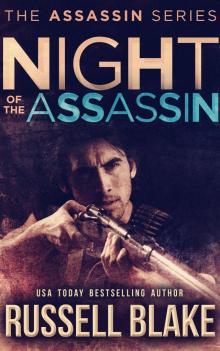 Night of the Assassin
Night of the Assassin Jet
Jet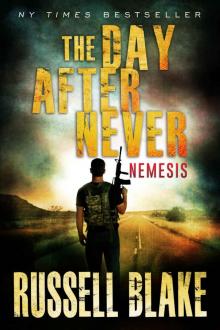 The Day After Never - Nemesis (Post-Apocalyptic Dystopian Thriller - Book 9)
The Day After Never - Nemesis (Post-Apocalyptic Dystopian Thriller - Book 9)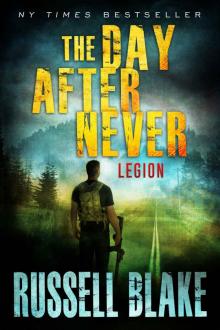 The Day After Never - Legion (Post-Apocalyptic Dystopian Thriller - Book 8)
The Day After Never - Legion (Post-Apocalyptic Dystopian Thriller - Book 8)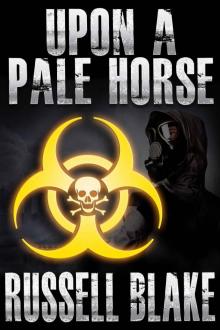 Upon A Pale Horse (Bio-Thriller)
Upon A Pale Horse (Bio-Thriller)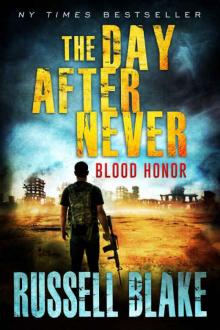 The Day After Never (Book 1): Blood Honor
The Day After Never (Book 1): Blood Honor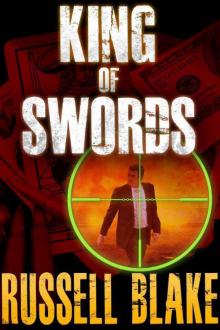 King of Swords a-1
King of Swords a-1 The Day After Never Bundle (First 4 novels)
The Day After Never Bundle (First 4 novels)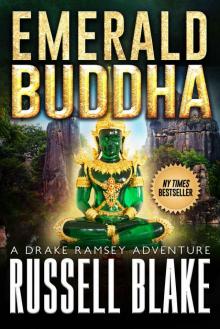 Emerald Buddha (Drake Ramsey Book 2)
Emerald Buddha (Drake Ramsey Book 2) BLACK to Reality
BLACK to Reality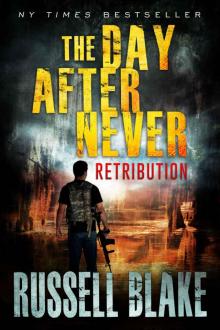 The Day After Never - Retribution (Post-Apocalyptic Dystopian Thriller - Book 4)
The Day After Never - Retribution (Post-Apocalyptic Dystopian Thriller - Book 4) Ramsey's Gold (Drake Ramsey Book 1)
Ramsey's Gold (Drake Ramsey Book 1)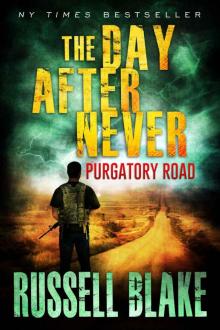 The Day After Never (Book 2): Purgatory Road
The Day After Never (Book 2): Purgatory Road JET - Ops Files
JET - Ops Files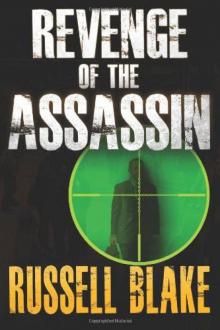 Revenge of the Assassin a-2
Revenge of the Assassin a-2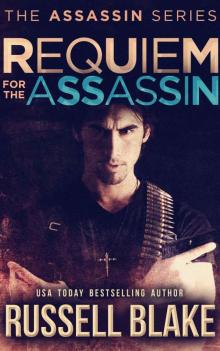 Requiem for the Assassin - 06
Requiem for the Assassin - 06 The Geronimo Breach
The Geronimo Breach Sahara
Sahara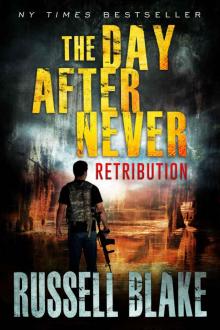 The Day After Never (Book 4): Retribution
The Day After Never (Book 4): Retribution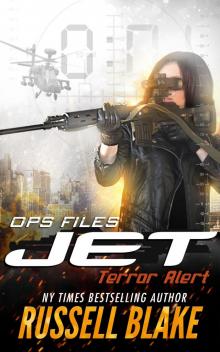 Ops Files II--Terror Alert
Ops Files II--Terror Alert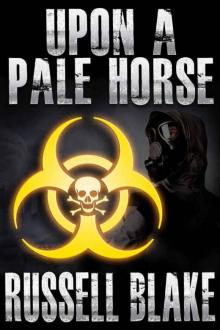 Upon A Pale Horse
Upon A Pale Horse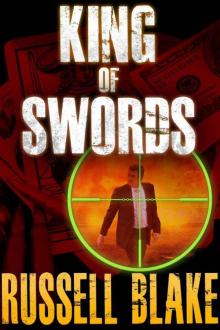 King of Swords (Assassin series #1)
King of Swords (Assassin series #1) A Girl Apart
A Girl Apart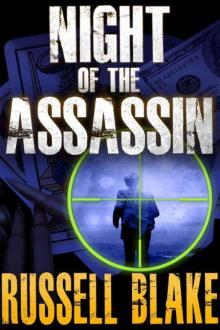 Night of the Assassin: Assassin Series Prequel
Night of the Assassin: Assassin Series Prequel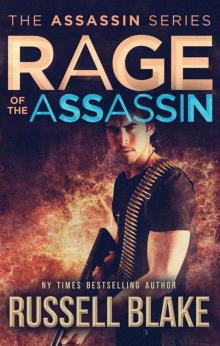 Rage Of The Assassin
Rage Of The Assassin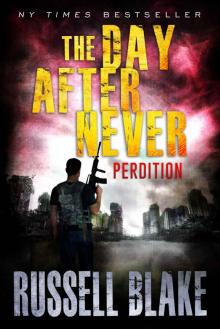 The Day After Never - Perdition (Book 6)
The Day After Never - Perdition (Book 6)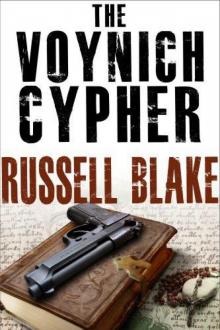 The Voynich Cypher
The Voynich Cypher JET, no. 3
JET, no. 3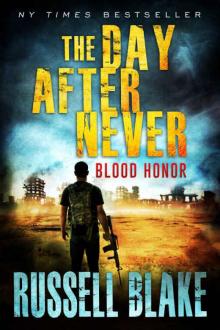 The Day After Never - Blood Honor (Post-Apocalyptic Dystopian Thriller)
The Day After Never - Blood Honor (Post-Apocalyptic Dystopian Thriller) 9 More Killer Thrillers
9 More Killer Thrillers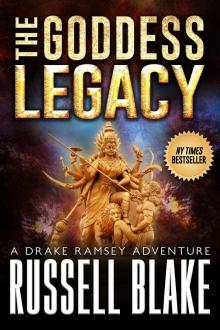 The Goddess Legacy
The Goddess Legacy Fatal Exchange
Fatal Exchange Fatal Exchange (Fatal Series Book 1)
Fatal Exchange (Fatal Series Book 1) JET - Forsaken
JET - Forsaken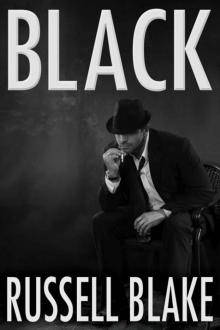 Black
Black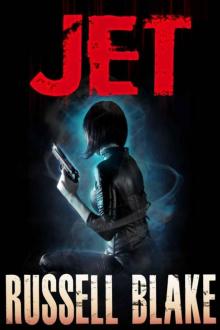 Jet j-1
Jet j-1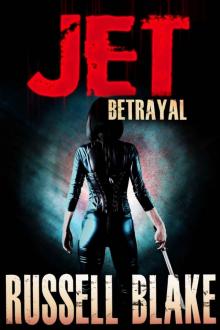 Betrayal j-2
Betrayal j-2 Jet 04: Reckoning
Jet 04: Reckoning Jet 03: Vengeance
Jet 03: Vengeance Fatal Deception
Fatal Deception A Girl Betrayed (A Leah Mason suspense thriller Book 2)
A Girl Betrayed (A Leah Mason suspense thriller Book 2)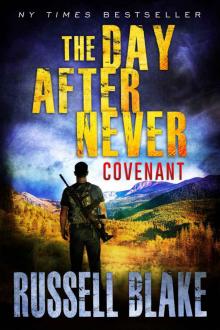 The Day After Never - Covenant (Post-Apocalyptic Dystopian Thriller - Book 3)
The Day After Never - Covenant (Post-Apocalyptic Dystopian Thriller - Book 3)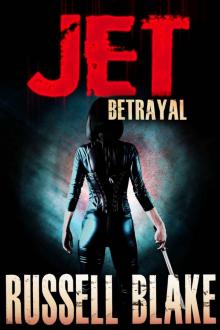 JET II - Betrayal (JET #2)
JET II - Betrayal (JET #2)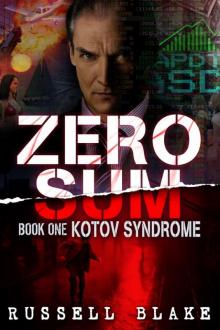 Zero Sum, Book One, Kotov Syndrome
Zero Sum, Book One, Kotov Syndrome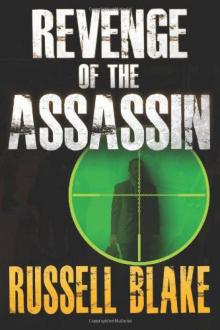 Revenge of the Assassin
Revenge of the Assassin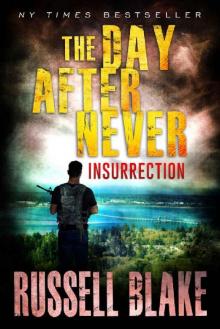 The Day After Never - Insurrection (Book 5)
The Day After Never - Insurrection (Book 5)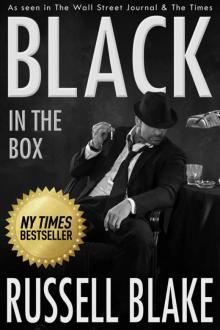 BLACK in the Box
BLACK in the Box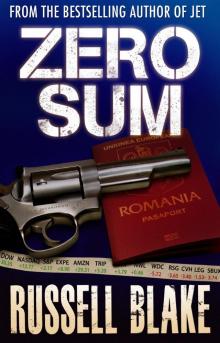 Zero Sum
Zero Sum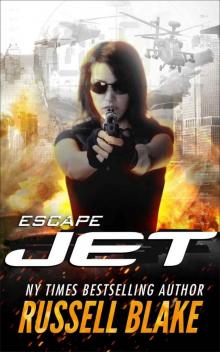 JET - Escape: (Volume 9)
JET - Escape: (Volume 9) The Manuscript
The Manuscript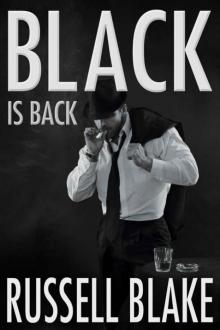 BLACK Is Back
BLACK Is Back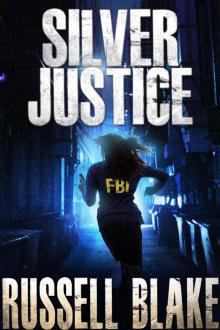 Silver Justice
Silver Justice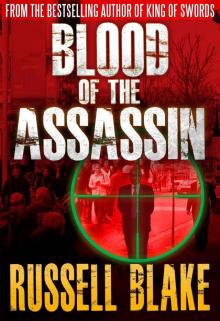 Blood of the Assassin
Blood of the Assassin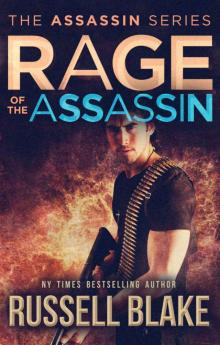 Rage of the Assassin: (Assassin Series #6)
Rage of the Assassin: (Assassin Series #6)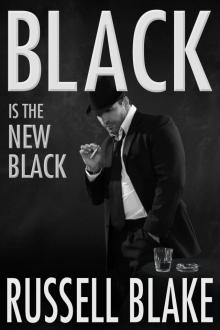 BLACK Is the New Black
BLACK Is the New Black